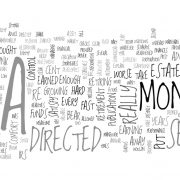Do Self-Directed IRAs Help Investors During a Crisis?
The COVID-19 pandemic has had devastating effects on the economy, the health of our citizens, and even our way of life. There is no doubt that this is a “Black Swan” event that investors like to talk about: one of those hard-to-predict sudden changes that recontextualize our concepts of what will happen in the future. But in a crisis like this, do Self-Directed IRAs help investors? And if so, how? Let us take a closer look at Self-Directed IRAs and how they might function during a crisis.
What Does a Crisis Mean, Anyway?
First, let us define a “crisis.” A crisis can fall into all sorts of categories:
- A financial crisis like the great financial crisis of 2008-2009 had a devastating impact on markets, as well as real estate prices. This is the kind of macroeconomic turmoil that can make investors worry about their 401(k) plans, their retirement strategy, and even their immediate-term job prospects.
- A geopolitical crisis such as a war can also wreak havoc on headlines and markets. We can be grateful that there are relatively few of these in the United States, but it does not mean that the risk is nil. It is important for investors to consider the real possibility of geopolitical crises having an impact on retirement prospects.
- A localized crisis may have devastating effects on a local economy, forcing people to move away from an area. For an investor with a Self-Directed IRA invested in real estate, a local crisis can drive down real estate prices, highlighting how important it is for investors to consider their real estate investing strategy.
There are other types of crises, of course: personal crises, for example. But for the purposes of Self-Directed IRAs, let us focus on crises that are economic and geopolitical in nature, such as the COVID-19 crisis.
Do Self-Directed IRAs Help Fend off a Crisis?
The simplest and most honest answer is: maybe. It depends on the investor. You are, after all, in charge of the portfolio you build. With a Self-Directed IRA, you will be free to choose from all sorts of investments, including precious metals, real estate, private companies, and more. The way you construct your portfolio is entirely a result of the decisions you make, once you open a Self-Directed IRA.
When people think about retirement investing, they generally think about building a boat large enough to weather any storm. But a boat can be large and sink, too. That is why it is important for investors to consider adding diversification to a portfolio. And that is a powerful advantage of the Self-Directed IRA.
Diversification is a powerful tool against a crisis because it helps an investor feel more secure in their assets. When an investor feels more secure, it is possible that they will make far fewer decisions that can adversely affect the quality of their portfolio. The temptation, during a crisis, is to pull money out as soon as possible. To move to cash. We do not make specific investment recommendations, so we will not say what you should or should not do during a hypothetical crisis. The investment decisions are up to you.
But it is important to see what a Self-Directed IRA would make possible. For example, if you feel that it is important to have real estate in a retirement portfolio, a Self-Directed IRA is a powerful vehicle for that. It allows retirement protections that make it more difficult to pull out assets during a crisis, encouraging long-term investing. And that is ultimately the goal of any IRA—to facilitate retirement investments on a far longer timeline than any crisis can endure.
Interested in learning more about Self-Directed IRAs? Contact American IRA, LLC at 866-7500-IRA (472) for a free consultation. Download our free guides or visit us online at www.AmericanIRA.com.






